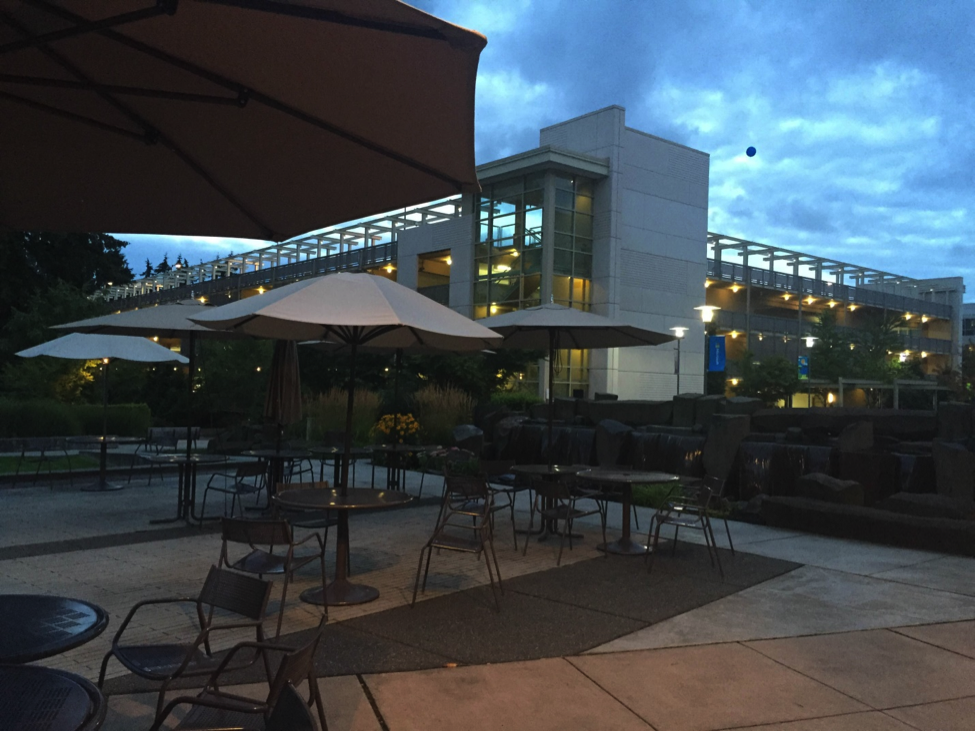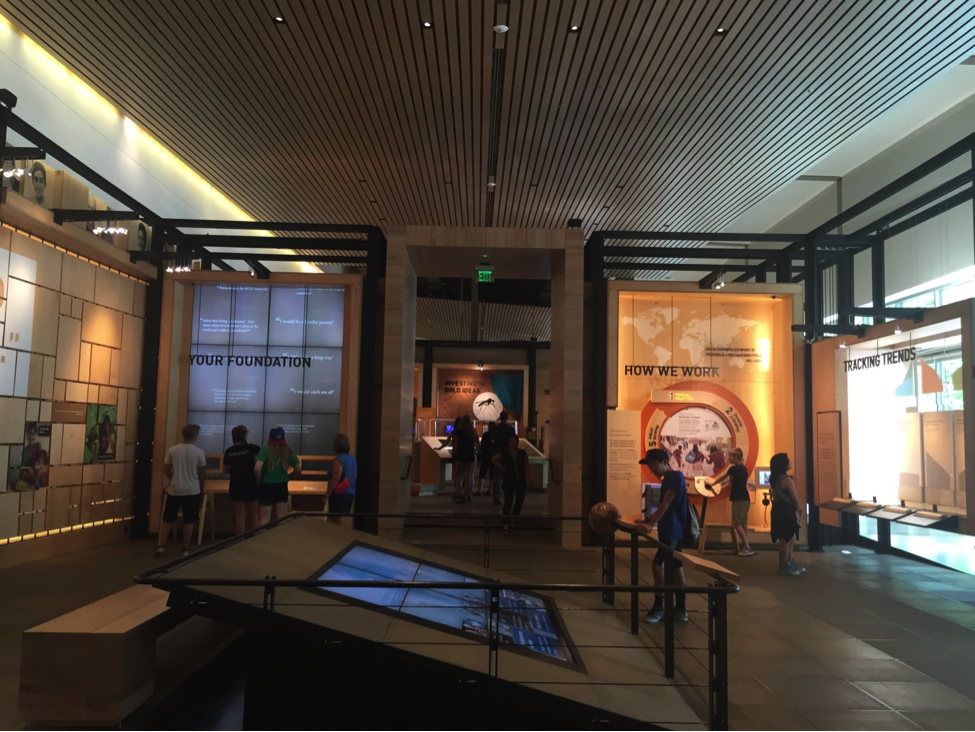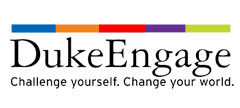Eight weeks in Seattle just ended so quickly that I can still imagine sitting in my small office at Solid Ground. During this period of time, I was deeply influenced by my working environment, group reflections as well as community involvement activities. They provided me with completely new insight into social issues such as poverty, hunger and homelessness.
One activity that really impressed me was the poverty simulation held in Seattle University. All the participants were assigned to different roles in a variety of “families”. My role was a 36-year-old mother. Before the simulation, I had never thought about family budgeting, not to mention budgeting while in poverty. I rarely thought from my mother’s perspective about how to organize the things needed for a family to continue. The poverty simulation designed a four-week experience where each family’s goal was to survive in each of the four fifteen-minute sessions. It was not hard to imagine that parents with jobs had to work, children had to go to school, and grandparents had to be taken care of.
As a mother with no job in the simulation, I almost had to do all the things (other than bringing in income) in order to make our family survive. Those things included buying transportation passes for my whole family, buying food at the beginning of each month, making mortgage payments and other necessary payments. There were just so many tedious things that I needed to do repeatedly each week that I felt under high pressure. If I forgot to do one of those important things, my family could possibly fall apart. Therefore, I was highly responsible for organizing all the tasks in a way that I could finish them one by one, on time. The most difficult part was to coordinate between weekly income and monthly expenses. In the third “week”, we ran out of funds due to making all the payments except for mortgage payment. Due to this delay, we were almost kicked out of our “house”. I could almost feel the anxiety of being homeless at that point. After we finally succeeded in survival at the end of the last week, I was so relieved. However, I was also aware that the what I have gone through in the simulation was nowhere near what’s really like to be actually experiencing homelessness or housing instability.
The very first thing I learned was the difficulty and responsibility of being a mother. This reminded me of my mother, who has flexible working schedules. Since my father has to work from nine to five on workdays, almost all the banking, food, and clothing things are done by my mother. I was surprised to realize that my mother did all the things in a well-organized way under the condition that she had a job. Secondly, in the simulation, everything became much harder with a limited budget. It was so cruel that I felt desperate when we had no money to pay for mortgage or buy food. Overall, the poverty simulation brought me new insights into family roles, budgeting and dealing with limited household income.
By: Coco Sheng
One activity that really impressed me was the poverty simulation held in Seattle University. All the participants were assigned to different roles in a variety of “families”. My role was a 36-year-old mother. Before the simulation, I had never thought about family budgeting, not to mention budgeting while in poverty. I rarely thought from my mother’s perspective about how to organize the things needed for a family to continue. The poverty simulation designed a four-week experience where each family’s goal was to survive in each of the four fifteen-minute sessions. It was not hard to imagine that parents with jobs had to work, children had to go to school, and grandparents had to be taken care of.
As a mother with no job in the simulation, I almost had to do all the things (other than bringing in income) in order to make our family survive. Those things included buying transportation passes for my whole family, buying food at the beginning of each month, making mortgage payments and other necessary payments. There were just so many tedious things that I needed to do repeatedly each week that I felt under high pressure. If I forgot to do one of those important things, my family could possibly fall apart. Therefore, I was highly responsible for organizing all the tasks in a way that I could finish them one by one, on time. The most difficult part was to coordinate between weekly income and monthly expenses. In the third “week”, we ran out of funds due to making all the payments except for mortgage payment. Due to this delay, we were almost kicked out of our “house”. I could almost feel the anxiety of being homeless at that point. After we finally succeeded in survival at the end of the last week, I was so relieved. However, I was also aware that the what I have gone through in the simulation was nowhere near what’s really like to be actually experiencing homelessness or housing instability.
The very first thing I learned was the difficulty and responsibility of being a mother. This reminded me of my mother, who has flexible working schedules. Since my father has to work from nine to five on workdays, almost all the banking, food, and clothing things are done by my mother. I was surprised to realize that my mother did all the things in a well-organized way under the condition that she had a job. Secondly, in the simulation, everything became much harder with a limited budget. It was so cruel that I felt desperate when we had no money to pay for mortgage or buy food. Overall, the poverty simulation brought me new insights into family roles, budgeting and dealing with limited household income.
By: Coco Sheng



 RSS Feed
RSS Feed
